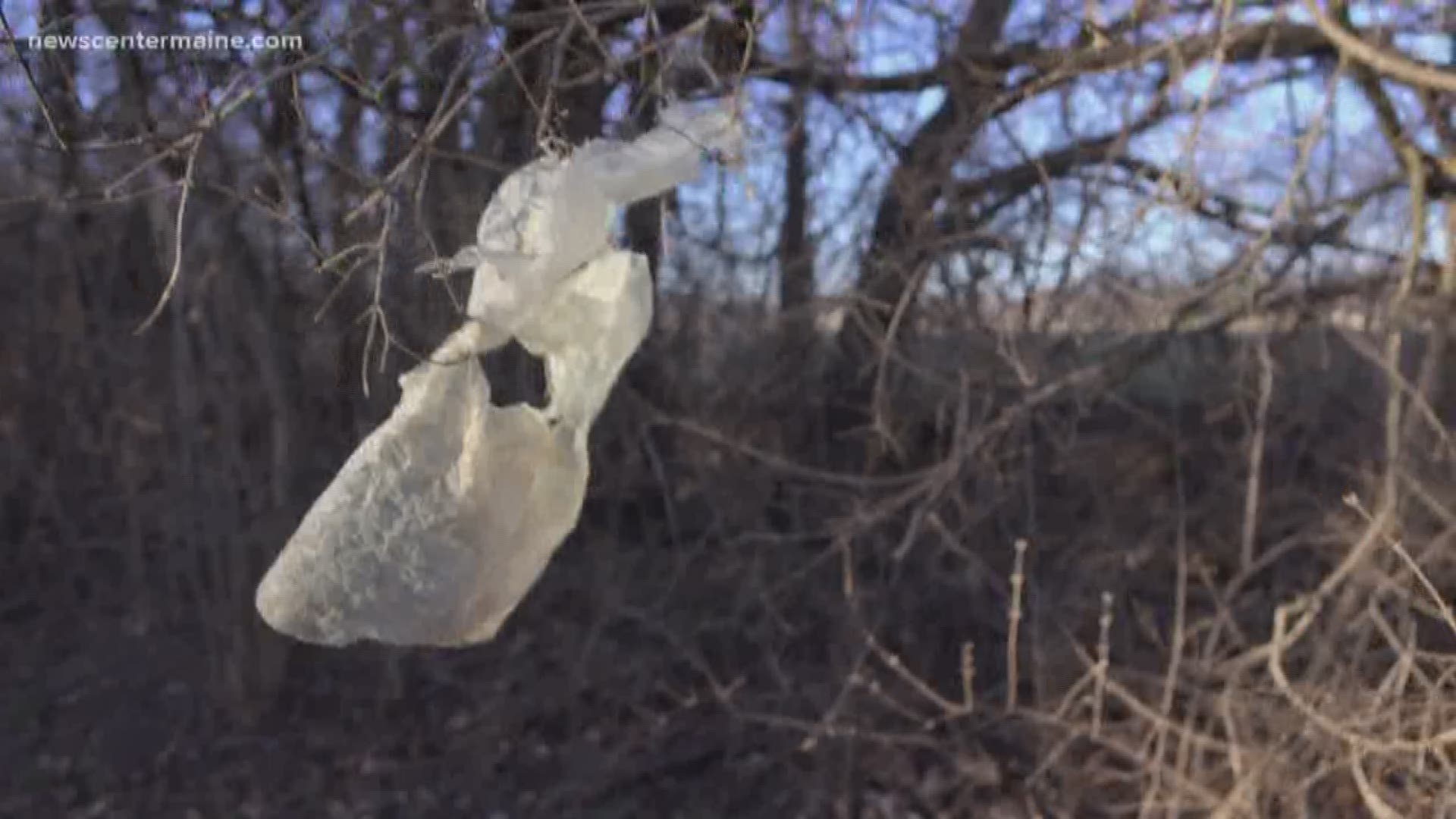AUGUSTA, Maine — Over the last year, China has cracked down on so-called "sloppy recycling." It's no longer accepting recycling from the U.S. that's contaminated with non-recyclable items, such as plastic bags.
If we're not re-using plastic bags, we're supposed to throw them out. So ultimately, are more ending up in Maine's waters?
It's a question NEWS CENTER Maine received from a viewer who lives in China, Maine.
Sue P. writes:
I live in the Town of China where officials for years have encouraged residents to sort and recycle their trash. There have been a number of stories, ads, etc. on the environmental impact of plastic and plastic bags in the ocean.
The last time I took my recycling to the transfer station, I noticed a sign saying they were no longer accepting plastic bags, and to throw them into the hopper with the household trash. When I asked, I was told that since China (the country) no longer accepted America's plastic trash, there was no outlet for it.
I wonder what other towns are doing with their recycling, and what this might mean for more pollution on our seashore.
To answer the first part of Sue's question, plastic bags are not recyclable, according to ecomaine.
Furthermore, several Maine towns and cities have banned plastic bags. According to the Portland Press Herald, the municipalities are listed below:
• Bar Harbor
• Bath
• Belfast
• Blue Hill
• Brunswick
• Camden
• Damariscotta
• Freeport
• Kennebunk
• Manchester
• Newcastle
• Saco
• Southwest Harbor
• Rockland
• York
Several communities charge fees for using plastic bags, including Portland, Falmouth, Topsham, and soon, Waterville.
Just this week, the Maine Supreme Judicial Court dismissed a challenge to Waterville's plastic bag referendum. This, after challengers, failed to meet the March 8th deadline to file a complaint.
Proposals to charge fees are also popping up in places like Augusta.
Meanwhile, there is a push to ban plastic bags, statewide
To answer the second part of Sue's question regarding plastic bag pollution in Maine's waters, our source is Dr. Susan Shaw, founder of The Shaw Institute, formerly known as The Marine & Environmental Research Institute, based in Blue Hill and New York.
According to Dr. Shaw, the research team discovered there is an average of 17 pieces of microplastic per liter of seawater off Maine’s coast and the average Maine oyster and mussel contains 177 plastic particles per animal.
This finding was part of a 2014 study developed by The Shaw Institute to measure microplastic fragments in Maine seafood. It was the first lab in the Pine Tree State to attempt to detect microplastic in Maine's waters.
Microplastic is formed overtime when plastic breaks down to tiny pieces, invisible to the naked eye. It's formed from all plastics, not just plastic bags. Once it's in the environment, water, or air, it's there forever, according to Dr. Shaw.
It appears seafood lovers are consuming microplastics, too.
According to a recent marine plastics study published by Susan Farady, Assistant Professor of Marine Affairs at the University of New England, the presence of plastic marine debris in our oceans has emerged rapidly in the last few years. She says concerns have been raised about possible adverse health impacts as a result of microplastic ingestion by marine life and seafood consumers and more research is needed.
Dr. Shaw echoes that.
"It's totally urgent that we find out what are the plastic fragments themselves doing in the body? Are they causing inflammation? Clogging up arteries? Are they clogging up the passageways in the lung? Are they getting into the brain? We don't know any of that," said Dr. Shaw.
She said there's an additional concern about the chemicals that are in the plastics, like flame retardants and phthalates; toxic chemicals that are known to cause health problems.
"What do we not know that we need to know?" asked Dr. Shaw. "It's a global problem."
So we can verify, plastic is present off the coast of Maine and it's impacting the seafood we eat.
However, instead of reusing plastic bags or throwing them out, you can recycle them.
"Although plastic bags usually cannot be put in your curbside recycling, they are 100% recyclable. They just need to be taken to grocery stores or major retail chains for recycling," said Erin Graziani, Communications Manager, for the American Progressive Bag Alliance.
Graziani went on to say recycled plastic bags are turned into things like building and construction materials, composite lumber, and new bags.
To find a drop-off location to recycle plastic bags, click here.

